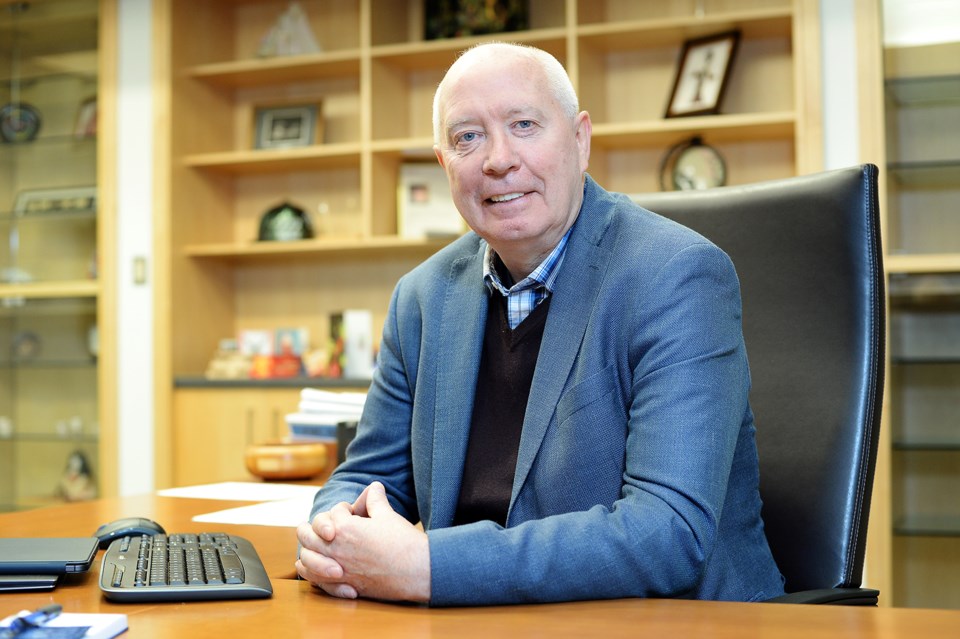“Whatever happened this year (2020), the effects of that will be felt for quite a while. So it’s going to take catching up. Things just didn’t move along like we hoped they would in 2020. So of course, that has a knock-on effect,” Hurley told the NOW in a 2020 year-end interview. “And I think our economies will take a little while to recover.”
In fact, Hurley said it could take a couple of years before the economy gets back to normal, with many effects of the pandemic still lingering, even as some government relief programs are scheduled to expire or taper off.
Despite all the negatives that came from 2020, however, Hurley pointed to some positives from the community.
“I think the real lesson learned for me was how our community came together and really helped those that needed help to get through this. It was a very tough year for seniors, and the isolation factor was even more pronounced this year than it has been in others,” Hurley said.
And while the city’s budget was hit by the pandemic, it has long been financially sound, famous for its billion-dollar reserves. Hurley noted the city could dip into its bank accounts to “smooth out the effects of the economy” in its budgeting.
The city was also able to halve its planned tax increase from 3.5% down to 1.75% to ease the burden on property owners, even as the city was quickly losing other revenue streams, such as sales of goods and services like recreation programs.
Meanwhile, a $9.6-million cash injection from the provincial and federal governments allowed the city to offset some of its budgeting shortfalls.
“(It) wasn’t nearly as much as we expected, but at the same time, we’re very grateful that we got that money,” Hurley said.
In all, the city lost around $11 million or $12 million – about 1.5% of its $801-million budget.
But 2021 may be an even more challenging year for the city financially, Hurley warned.
“There’s gonna be so many businesses I think that were able to work their way through this year (2020), but I think next year could be even tougher for them in their recovery,” Hurley said.
“They got some help from senior governments. They got some help from some financial institutions. … I’m thinking that that type of help might not necessarily be there as much this year (2021).”
Moving forward, Hurley also noted there will be some lessons from a city planning perspective.
“The overall value of our parks were a lifesaver for so many people who were able to get out and enjoy those, even at the worst of the pandemic,” Hurley said, noting outdoor infrastructure will need to be examined in light of the pandemic. “(Parks) were packed day after day after day. So that was really where people – local people, Burnaby people – actually went to survive.”
Hurley said this isn’t just a hypothetical – planners throughout the region are talking about how the pandemic has shifted paradigms around city building.
“I know in Metro Vancouver we’ll be talking a lot about expanding our parks and how we can make our parks and those outdoor spaces even more usable for the people who need them,” Hurley said.
And that’s something that could eventually be codified into bylaws, Hurley said, noting developers are even talking about ways to make their buildings more adaptable.
“So developers are even going to have to start looking at that, how they can manage that better,” Hurley said.
Follow Dustin on Twitter: @dustinrgodfrey
Send him an email: [email protected]




